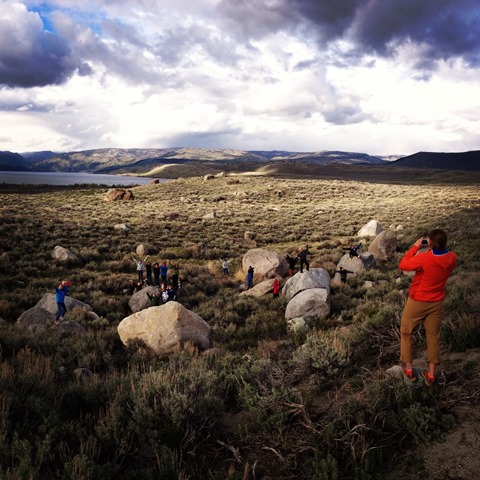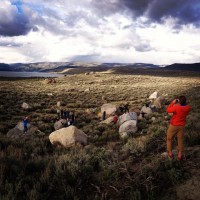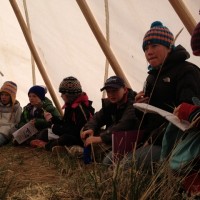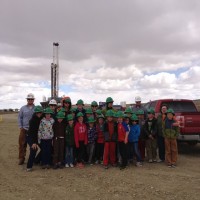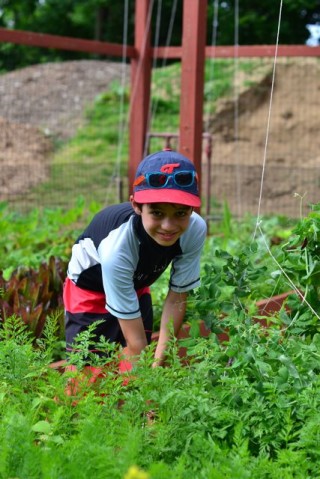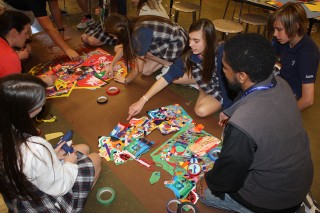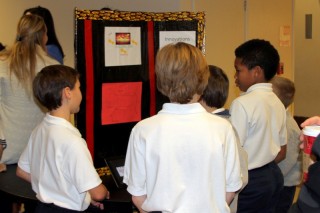Three times a year, K-12 students at Journeys School of Teton Science Schools in Jackson, Wyoming, examine and explore solutions to issues in their world. Aptly named “journeys,” each unit of study is intentionally designed to teach students to understand and weigh the social, economic, and ecological components of local and global communities, and to develop a set of lenses through which they can address challenges in the world.
This spring, third and fourth graders were asked to find and offer solutions to two big problems facing their Northwest Wyoming community—gas exploration and wildlife habitat needs. They spent a week interviewing wildlife biologists, touring natural gas drilling fields, and exploring the modern and historical community at the center of the issue. They then translated those interviews and professional presentations into personal opinion statements about the necessary work ahead. It was not an easy task for such young students, but they were eager to share their findings. “It was very interesting,” said one fourth grader, “learning about the different perspectives on the conflict.”
“Journeys” in other grade levels included investigating the sustainability of Salt Lake City, the problems and successes within Costa Rica, the natural world of Yellowstone National Park, and a Japanese internment camp in central Wyoming.
“If we want students to change the world,” says Associate Executive Director Nate McClennen, “we must not rest with just academic excellence, but also need to teach them to ask hard questions in a balanced, open-minded, and reflective manner.”
